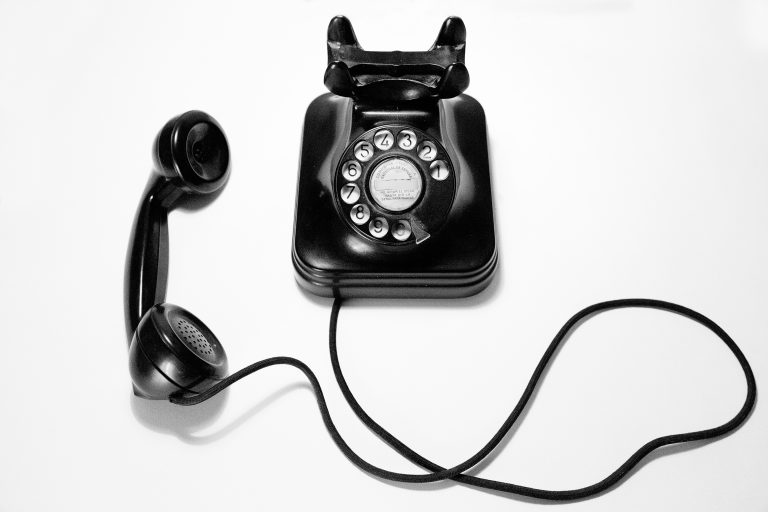ELI5 Summary:
Bluetooth can run slow due to a few common reasons: interference from other devices or physical obstacles, outdated software or hardware, and too many connected devices. Bluetooth operates on the 2.4GHz frequency, which is shared by many devices – leading to possible interference. If your Bluetooth hardware or software is outdated, you’re not leveraging the latest speed and range capabilities. Lastly, just like a traffic jam, too many devices requesting Bluetooth attention can slow down the connection. Addressing these issues can often lead to a significant speed boost.
Introduction: The Mysterious Case of Slow Bluetooth
In our rapidly digitizing world, nothing is quite as frustrating as slow technology. Not least of all, slow Bluetooth. Whether it’s your wireless headset stuttering mid-song or connectivity issues as you try to transfer files, slow Bluetooth can be a major annoyance. But why exactly does your Bluetooth slow down? Let’s begin our investigation.
Understanding Bluetooth Technology
How Bluetooth Works: A Quick Overview
To fully appreciate why Bluetooth might be slow, we need to understand the basic dynamics. Bluetooth essentially uses short-wavelength UHF radio waves to exchange data between fixed and mobile devices. This is done over a short distance to create a personal area network. A critical component here, however, is the available bandwidth, which explains a lot about speed rates.
Key Factors Influencing Bluetooth Speed
When discussing Bluetooth speed, several influencing factors come into play:
- Bluetooth version: Different versions of Bluetooth offer different speeds. For instance, Bluetooth 5 can provide twice the speed of Bluetooth 4.2.
- Distance: The further your devices are from each other, the slower your Bluetooth connection is likely to be. This is due to signal attenuation.
- Interference: Other devices using the same 2.4 GHz frequency can cause interference and slow down your Bluetooth connection.
Understanding these factors sets the stage for realizing why your Bluetooth might be slow and what you can do about it.
Why is Your Bluetooth So Slow?
In many cases, a phenomenon known as Bluetooth lag could be causing your device’s slow performance. Let’s delve into some of the common culprits.
Culprit #1: Interferences and Obstacles
Did you know other devices can stall your Bluetooth connection? Everything from your WiFi router to your microwave or even other Bluetooth devices can contribute to interference. Physical obstacles like walls or furniture may also block your Bluetooth signal and slow it down.
Culprit #2: Outdated Software or Hardware
In a world that’s always upgrading, sticking to old software or hardware can handicap your Bluetooth’s speed. Older versions of Bluetooth can’t access the improved speed and range of later versions. Therefore, an outdated gadget or old operating system can be a significant factor in your Bluetooth slowdown.
Culprit #3: Too Many Connected Devices
The more devices paired to your Bluetooth, the slower it might become. This is because your Bluetooth connectivity splits its attention and resources across all connected devices. This simultaneous demand can result in a speed hit, especially when multiple devices are actively using the connection. Consider this the equivalent of a traffic jam on your Bluetooth highway.
Solutions to Speed Up Your Bluetooth
Now that we’ve looked into some of the common pitfalls that slow down your Bluetooth, let’s explore potential solutions. With the right steps, it’s likely you can boost your Bluetooth’s speed and drastically improve your user experience
Revamping Your Setup: Quick Fixes to Try
There are several immediate steps you can take to try and boost your Bluetooth speed. Consider moving closer to your connected device, or clearing the area of potential physical obstacles. Reducing interference from other devices – particularly those operating on the same 2.4GHz frequency – can also be beneficial.
Upgrading Your Hardware for Better Speeds
Sometimes the quickest way to speed up your Bluetooth is by simply upgrading your hardware. If your device uses an older Bluetooth version, consider investing in a new model. Higher versions such as Bluetooth 5 offer far superior speed and range, which could resolve your slow speed issue.
Managing Your Bluetooth Connections Efficiently
Try to limit the number of devices connected to your Bluetooth at any given time. Just like managing your phone’s apps, too many connections can slow Bluetooth performance. By closing unnecessary connections, you may notice a significant speed boost. It’s a simple but effective step in reducing what can be considered Bluetooth traffic.
Preventing Bluetooth Slowdowns: Tips and Tricks
Boosting your Bluetooth speed isn’t just about making changes. It’s equally important to adopt best practices that ward off any future slowdown. Let’s delve into some preventative measures.
Keeping Your Drivers Updated
Like all technology, Bluetooth relies on certain software components, or drivers, to operate. Keeping these drivers updated will ensure your Bluetooth technology can make use of the latest speeds and improvements. Plus, updates often fix known issues that might be slowing down your connection.
Understanding the Impact of Distance and Interference
Becoming aware of the environment your Bluetooth operates in is key. Keep your devices close to each other to avoid signal lag. Also, remember to check for devices that might interfere with your Bluetooth’s frequency. Simply removing these interfering elements or changing their position could have a significant impact on your Bluetooth speed.
Regular Device Restart
It seems too simple, but regular device restarts can do wonders for your Bluetooth speed. Restarting your devices can clear temporary data that might be slowing down your connection. It’s a quick trick, but it often helps, especially when faced with sudden Bluetooth slowdowns.
Conclusion: Demystifying the Bluetooth Speed Mystery
Slow Bluetooth connectivity can be a stumbling block in our increasingly wireless world. Whether it’s sluggish music streaming or slow file transfers, the lag can be frustrating. However, understanding why your Bluetooth is slow paves the way for simple but effective solutions.
From addressing interference and physical barriers to managing your Bluetooth connections efficiently, boosting the speed is often simpler than it might seem. Moreover, preventative measures like keeping drivers updated and understanding the impact of distance and interference can help maintain an optimal speed.
Remember, just as traffic can slow down a superhighway, several factors combined can slow down your Bluetooth. But armed with the right knowledge, you’re now fit to break free from the shackles of slow Bluetooth, and enjoy the fast and efficient connectivity you deserve!
Here’s to better, faster, and more reliable Bluetooth connections!
Final Thoughts
In our always-connected lifestyles, a slow Bluetooth connection can be a real bottleneck. It disrupts our workflows, our leisure times, and sometimes just niggles us with the question – “Why is Bluetooth slow?” But as we have learned, the answer is usually not a lack of technology but a combination of various factors.
Whether it’s environmental interference or too many connected devices all wanting a piece of the action, understanding the why plays a key part in troubleshooting the problem. And the good news? Most of them have easy-to-implement solutions. It’s a matter of knowing what to look for and taking swift corrective action.
- https://www.iop.org/explore-physics/physics-around-you/technology-our-lives/bluetooth#:~:text=Devices%20connected%20in%20a%20Bluetooth,2.4%20billion%20waves%20per%20second).
- https://www.headphonesty.com/2021/01/bluetooth-versions/
- https://www.headphonesty.com/2021/01/bluetooth-interference/#:~:text=Common%20signs%20of%20Bluetooth%20interference,noise%20that%20affects%20your%20hearing.
- https://www.systweak.com/blogs/how-to-update-bluetooth-driver-windows-10/#:~:text=A%20Bluetooth%20driver%20allows%20the,the%20Bluetooth%20driver%20is%20recommended.




